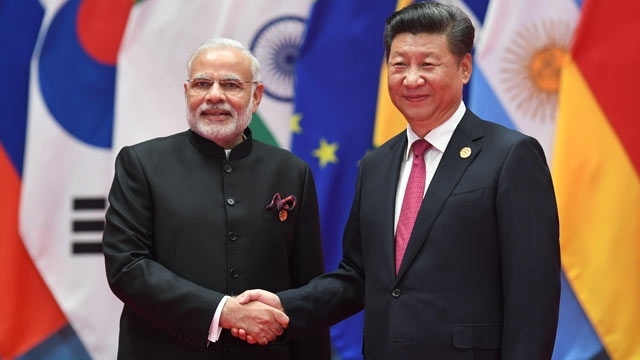India-China strategic dialogue
February 21, 2017 | Expert Insights
Will the meeting be short on substance?
On 22 Feb 17, India and China shall hold strategic-level talks at Beijing, China. India shall be represented by Foreign Secretary S Jaishankar, while China will be represented by Vice Foreign Minister Zheng Yesui. This is the sixth round of strategic bilateral talks that began in 2005. Substantive issues likely to come up between the two nations are as under.
Will Masood Azhar be Proscribed?
Last year, India made three attempts to black-list Jaish-e-Mohammed Chief Masood Azhar, under UNSCR 1267. However, on each occasion the proposal was blocked by the PRC. China states that they have not received concrete evidence against the alleged mastermind of terrorism, in J&K and the Mumbai attacks. However, all the other nations in the UNSCR 1267 Committee appear agreeable to black-list the individual. Earlier this year, US now initiated the proposal to black-list Masood Azhar, which was also put on temporary technical hold, by the PRC. However, as per rules the case shall have to be reconsidered by the Committee, within six months.
Will China Support India’s membership to the Nuclear Suppliers Group (NSG)?
In June 2016, it was reported that India’s application for membership to the NSG was blocked by the PRC. China’s stated reason was for uniform response, to all non-NPT nations. India and Pakistan along with eight other countries are non-signatories to the NPT. In 2005, considering India’s reputation and impeccable record for non-proliferation, the US signed the Indo-US Nuclear deal, paving the way for India to enter into nuclear commerce with NSG nations. On a similar basis, India wants to become the first non-NPT compliant member of the NSG. Pakistan has also applied for NSG membership.
Will there be progress on the border dispute?
The Indo-China border has neither been delineated (marked on a map) nor been demarcated (marked on ground), for more than a century. There are two major areas of contention. The first being Aksai Chin, a Himalayan high-altitude desert to the West, in possession of China. And the second being the Indian state of Arunachal Pradesh, to the East, claimed by China. There have been more than 19 rounds of border talks and areas of differing perception have also been identified.
Assessment
There is plenty of evidence against Masood Azhar; considering that he was captured in J&K and returned to the Taliban in 1999, in exchange for the hijacked Indian Airlines IC-814. Now that US has initiated an application for him being proscribed under UNSCR 1267, it may become difficult for China, to defend the Pakistani national, any longer. China may withdraw their objection to him being UN black-listed. However, on the issue of NSG membership, China is likely to insist that the matter be treated as a multi-lateral issue and not a bilateral one. India may have to provide some key support (like support China’s application to MTCR), to win this one. The vexed border issue may need mutual accommodation from both sides; something that is politically challenging, in our vibrant democracy. It is unlikely that any significant progress will be made on this issue also.


